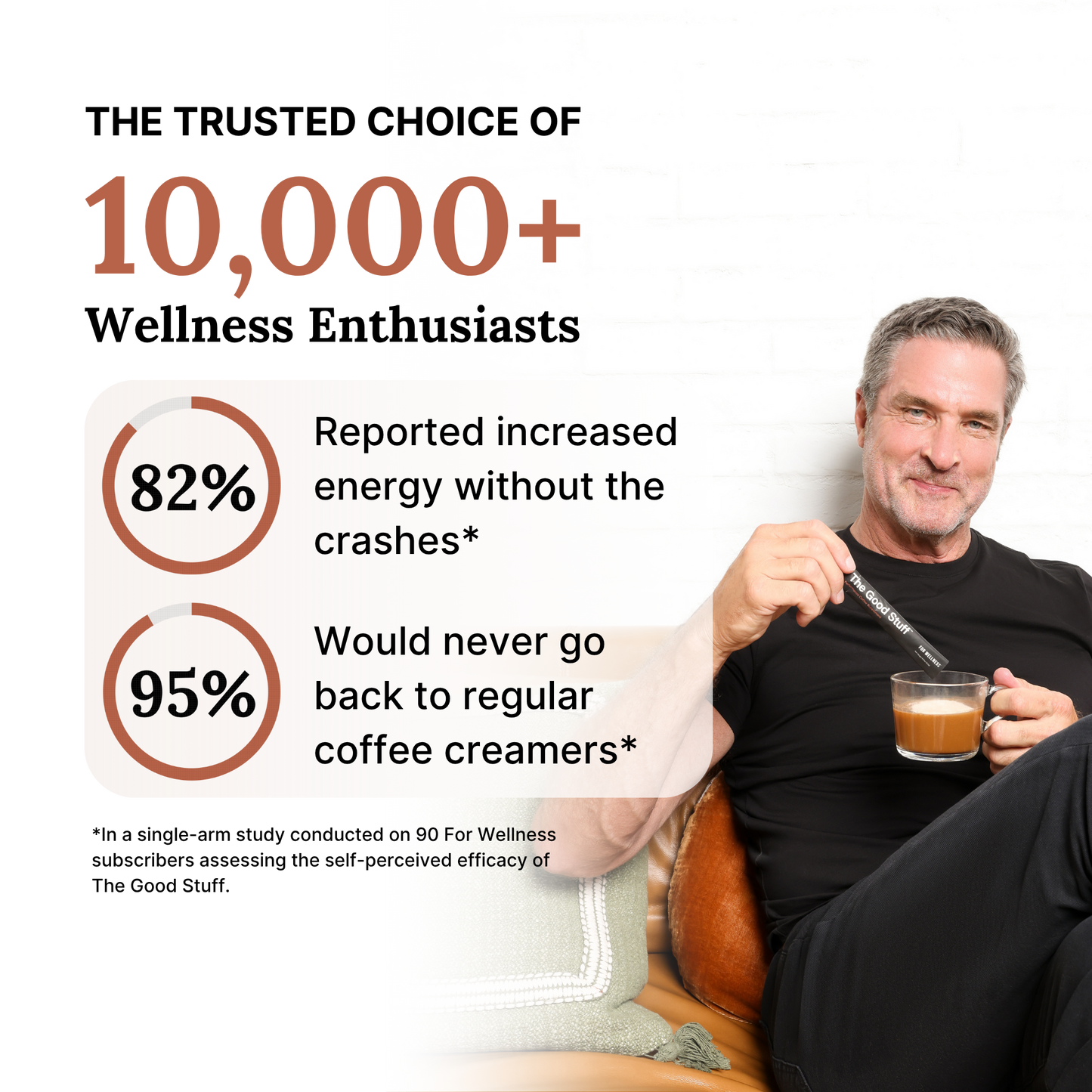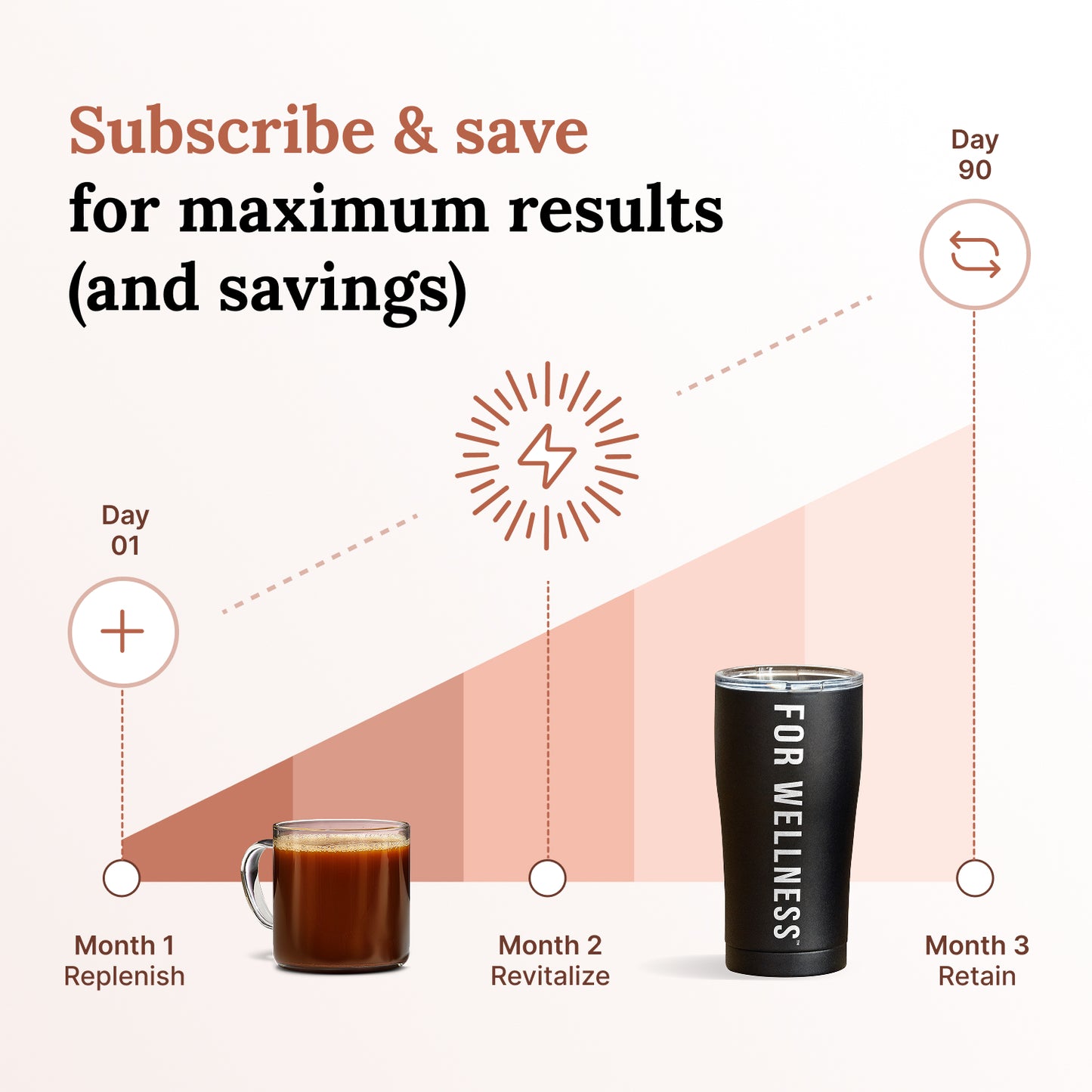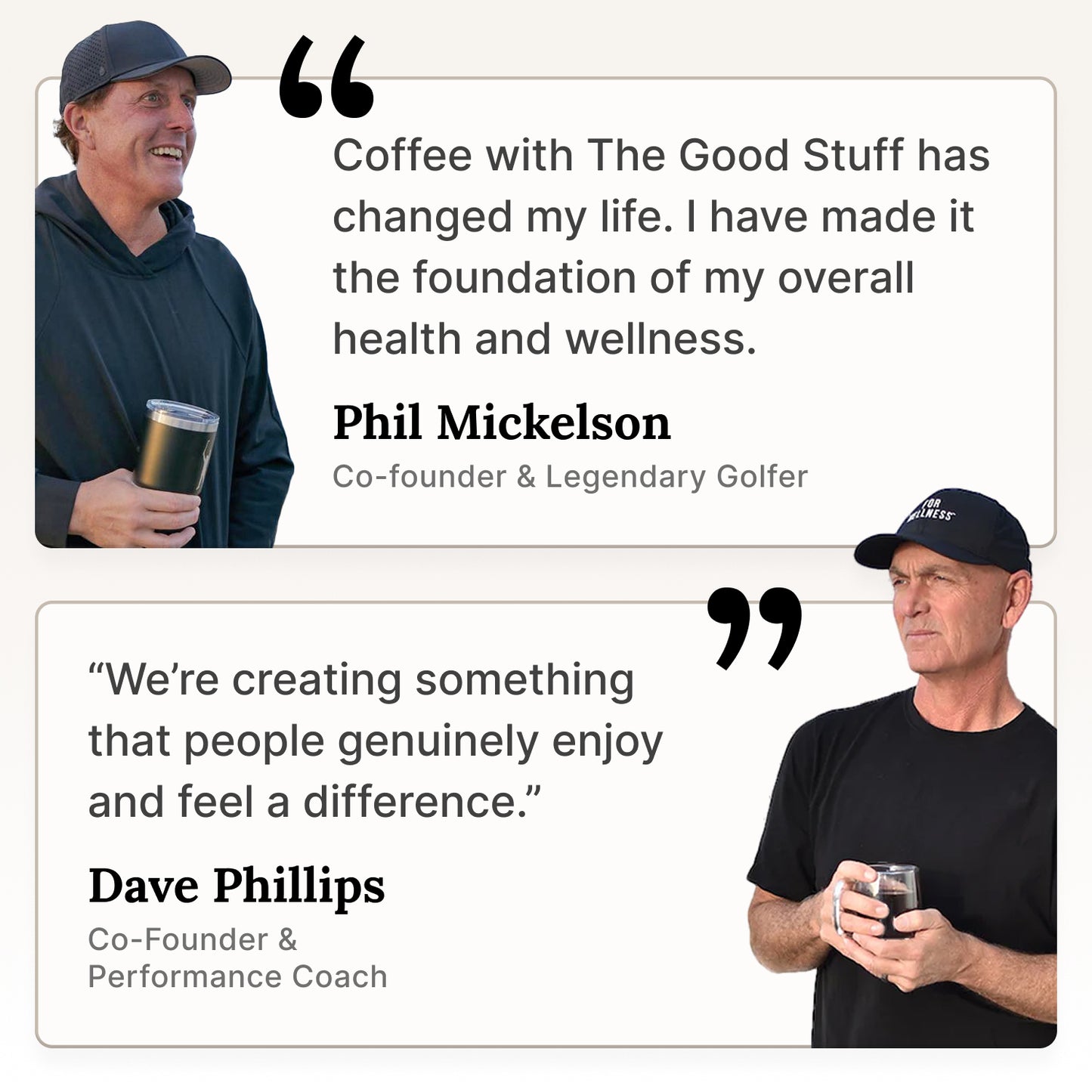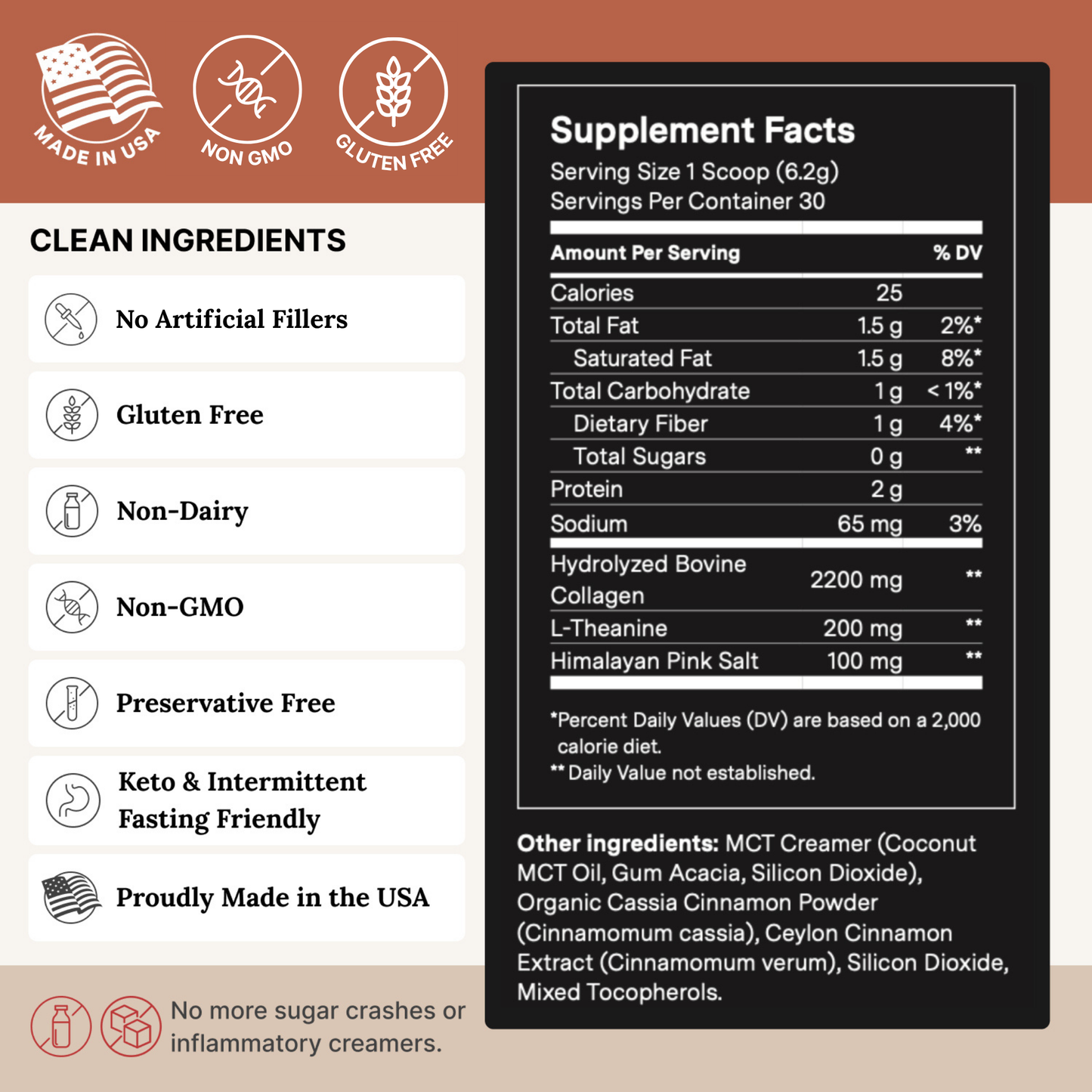Ever wondered why Steve Jobs always wore the same turtleneck? It wasn't because he was making a fashion statement!
By eliminating the decision of what to wear, Steve Jobs (and many other high-powered individuals including Barack Obama and, reportedly, Albert Einstein) was easing his 'decision fatigue' and reducing his mental load for the day.
This freed up Jobs' mind to focus on more complex or pressing tasks, similar to how you might rest your muscles ahead of a big workout.
Decision fatigue is a psychological phenomenon that can significantly impact our daily lives, affecting our ability to make sound choices and potentially leading to poor decision-making. This cognitive drain occurs when we're faced with an overwhelming number of decisions throughout the day, gradually eroding our mental energy and willpower.
This can be especially significant when it comes to our health. Whether it's ignoring cravings, counting calories, or figuring out a new diet, all of these decisions add up on our mental load.
That's why at For Wellness, we're huge advocates for routine. Americans make an estimated 35,000 decisions everyday, so why not take a few off your plate?
Starting everyday with The Good Stuff will eventually make health coffee a non-decision. Same with our brownie Bites. Keep a few at your desk and rather than tossing up the muffins in the break room, you'll make the automatic choice to chomp on a healthier (and dare we say, tastier) Superfood Bite.
This even comes down to our subscription set up. With a subscription, you put your health on autopilot, so you can enjoy your healthy coffee without a second thought.
But we digress! Let's unpack decision fatigue see if you can't streamline your healthy routine for a better you.
Understanding Decision Fatigue
Decision fatigue develops as we make more and more choices, regardless of their importance. Whether it's selecting what to wear, deciding on lunch, or making critical decisions, each choice takes a toll on our mental resources. As the day progresses, the quality of our decisions tends to deteriorate.The concept is rooted in the idea that willpower is a finite resource that can be depleted. When we exhaust this resource, we become more likely to:
- Procrastinate or avoid making decisions altogether
- Make impulsive choices without careful consideration
- Experience difficulty in weighing options effectively
- Feel mentally and emotionally drained
The Impact of Decision Fatigue
The effects of decision fatigue can be far-reaching and impact various aspects of our lives:
1. Decreased Productivity: As mental energy wanes, tasks that require decision-making become more challenging, leading to reduced efficiency and output.
2. Impaired Judgment: Fatigue can lead to poor choices, especially in important matters that require careful consideration.
3. Health Implications: Poor dietary choices and skipped workouts often result from depleted willpower, potentially impacting overall health and well-being.
4. Increased Stress: The constant pressure to make decisions can contribute to heightened stress levels and anxiety.
5. Physical Symptoms: Decision fatigue can manifest physically, causing symptoms like headaches, irritability, and difficulty concentrating.
6. Relationship Strain: Impaired decision-making can affect personal and professional relationships, as communication and conflict resolution become more challenging.
7 Tips to Avoid Decision Fatigue
Fortunately, there are strategies we can employ to mitigate the effects of decision fatigue and maintain our decision-making abilities throughout the day:
1. Establish Routines and Habits
Creating routines for recurring decisions can significantly reduce the mental load associated with daily choices. By automating certain aspects of your life, you free up mental energy for more important decisions.
Practical steps
- Plan and lay out your outfits for the week in advance (or even the night before will do!)
- Set a consistent wake-up time and morning routine
- Meal prep to avoid daily food decisions
- Automate deliveries like groceries you use regularly, your health supplements, and household necessities that you know you'll use
2. Prioritize Important Decisions
Recognize that not all decisions carry equal weight. Identify the most critical choices you need to make and tackle them when your mental energy is at its peak, typically in the morning.
Practical steps:
- Create a to-do list, ranking tasks by importance
- Schedule important meetings or decision-making sessions earlier in the day
- Defer less critical decisions to later in the day or delegate them if possible
3. Simplify Your Options
Reducing the number of choices you have to make can significantly alleviate decision fatigue. Simplifying your options makes the decision-making process less taxing on your mental resources.
Practical steps:
- Streamline your wardrobe with versatile, mix-and-match pieces
- Limit your menu options when dining out
- Create a capsule wardrobe for work attire
4. Use Decision-Making Tools
Leverage tools and frameworks to assist in the decision-making process. These can help structure your thoughts and make complex decisions more manageable.
Practical steps:
- Utilize decision matrices for weighing pros and cons
- Implement the "two-minute rule" - if a task takes less than two minutes, do it immediately
- Use apps or software designed for task management and decision support
5. Practice Self-Care
Maintaining good physical and mental health is crucial for combating decision fatigue. Proper self-care ensures that you have the energy and clarity needed for effective decision-making.
Practical steps:
- Prioritize getting adequate sleep each night
- Engage in regular physical exercise
- Practice mindfulness or meditation to reduce stress
6. Delegate and Collaborate
Sharing the decision-making burden can significantly reduce individual stress and fatigue. Don't hesitate to involve others in the process when appropriate.
Practical steps:
- Delegate decisions to team members or family when possible
- Seek input from trusted colleagues or friends on important choices
- Use collaborative decision-making tools for group projects
7. Set Decision-Making Time Limits
Allocating specific time frames for making decisions can prevent overthinking and reduce the mental drain associated with prolonged deliberation.
Practical steps:
- Use the Pomodoro Technique to focus on decision-making in short bursts
- Set a timer for important decisions to ensure you don't spend excessive time deliberating
- Establish personal deadlines for making choices to avoid procrastination
Conclusion
Decision fatigue is a real phenomenon that can significantly impact our daily lives and overall well-being. By understanding its effects and implementing strategies to combat it, we can maintain our decision-making abilities and improve our quality of life. Remember, the goal is not to eliminate all decisions but to manage them effectively, preserving our mental energy for the choices that truly matter.
Incorporating these seven tips into your daily routine can help you navigate the countless decisions you face with greater ease and confidence. By establishing routines, prioritizing important choices, simplifying options, utilizing decision-making tools, practicing self-care, delegating when appropriate, and setting time limits, you can reduce the burden of decision fatigue and make more effective choices throughout your day.
Ultimately, becoming aware of decision fatigue and actively working to mitigate its effects can lead to improved productivity, better relationships, and a greater sense of control over your life. Remember that managing decision fatigue is an ongoing process, and it's okay to refine your approach as you learn what works best for you. With practice and persistence, you can develop a more balanced and effective approach to decision-making, ensuring that you have the mental energy and clarity to tackle life's most important choices.















